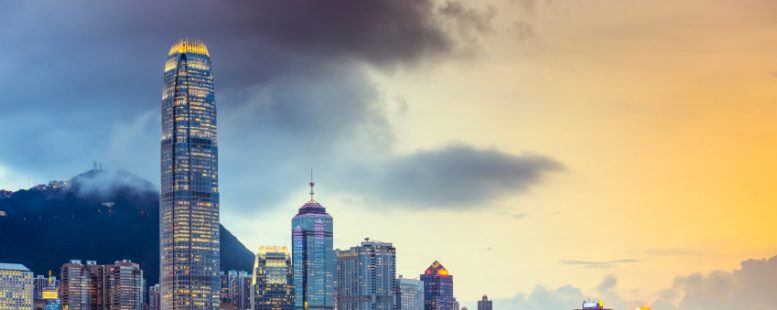Our Opinion: 2020
Is Hong Kong becoming a ‘failed state?’

Last week, Bloomberg reported that Hong Kong was starting to resemble a ‘failed state.’ There is palpable anxiety in the coronavirus-hit city, where a bungled official response, shortages of masks and toilet-paper panics are causing chaos.
A failing state is one that cannot protect its citizens, provide basic services and command the trust of its people. With the city reeling from anti- government protests, it is ticking most of those boxes.
The city is failing to provide the safety and stability that a global financial centre needs. The contrast with Singapore is stark: the prognosis for Hong Kong’s future as a financial hub looks poor.
Last year’s protests and a sharp decline in tourism had already pushed Hong Kong into recession, with GDP contracting 2.9% year on year in the final quarter of 2019. Now the coronavirus epidemic is making things even worse.
UBS analysts predict a year-on-year fall of over 6% in the first quarter of this year, whilst the local Hang Seng stock index is down more than 3% since 1st January and property prices are 5% below their peak. The risk now is that speculative capital might quit the market and the city. Falling property prices would put pressure on the banking system.
Meanwhile, the loss of international and mainland visitors is inflicting a double devastation on local retailers. While the number of coronavirus cases in Hong Kong is relatively low, a more serious epidemic risks triggering a Wuhan-style lockdown. Macau and Thailand, where Chinese arrivals account for 2.7% of GDP, are also vulnerable. Other economies in southeast Asia with significant Chinese tourist traffic include the Philippines and Vietnam.
Hong Kong is heading for its first back-to-back annual recessions on record, as the coronavirus shutdown cripples an economy already battered by months of political unrest.
Economists’ forecasts since the start of February point to a contraction of more than 1% this year, following a 1.2% decline in 2019. That would mark a bigger decline and a slower recovery from the virus than from the SARS episode of 2003, when output roared back after the all-clear was signalled.
Weakened by months of anti-China protests that have kept tourists away and slashed retail receipts, Hong Kong cannot rely on trade and arrivals from the mainland to stoke an economic comeback. The world’s second-largest economy is struggling to restart production after shuttering factories and businesses in an effort to stem the spread of the illness.
The likelihood of a rapid recovery is very slim this time around. Neither the global economic environment nor Hong Kong’s domestic political situation supports it.
This presents a grim outlook for Hong Kong in 2020 as the government prepares its annual budget.
Economists forecast a 1.2% contraction in the economy in 2020. The virus has also steepened forecast contractions for the first two quarters of the year, while delaying an anticipated recovery in earnest into the fourth quarter.
Hong Kong was able to recover quickly from SARS in large part due to tourism spending from a booming Chinese economy. Yet circumstances in China now are very different from 2003. The increasingly anti-China nature of the unrest in Hong Kong in recent months also makes it unlikely that mainland tourists will flock to the city even after virus fears abate.
That Chinese economic boom heralded a multi-year rise in wealth and spending in the financial hub of Hong Kong, from the proliferation of luxury shopping centres to an almost six-fold increase in property value and an influx of Chinese investment via stock and bond trading links.
It’s unclear if Hong Kong will ever see visitor levels from the mainland return to the record high of more than five million per month posted before the protests. Mainland visitors typically account for 70% to 80% of total arrivals into the city.
Preliminary visitor arrivals data for February show average daily traffic to the city plummeted to fewer than 3,000 people, according to the Hong Kong Tourism Board. That’s an almost 99% decline from the same period last year.
This makes for a very difficult consumption environment in which to add major government stimulus. Nevertheless, Lam announced this week that the government will seek approval from the legislature for almost HK$28 billion ($3.6 billion) in fresh funding to reduce the effects of the coronavirus outbreak in the city. The extra spending comes on top of a similar amount rolled out last year to stem the bleeding from months of unrest, as well as another HK$10 billion in livelihood measures announced in January.
Hong Kong is facing tsunami-like shocks, and spending pressure from repeated stimulus measures and rising recurring costs may lead to a record budget deficit in the next fiscal year.
And while the financial system has largely not been hurt through the protests, a longer downturn amid the virus will put lenders at increasing risk. This situation could well worsen in the days and weeks ahead.
20th February 2020
